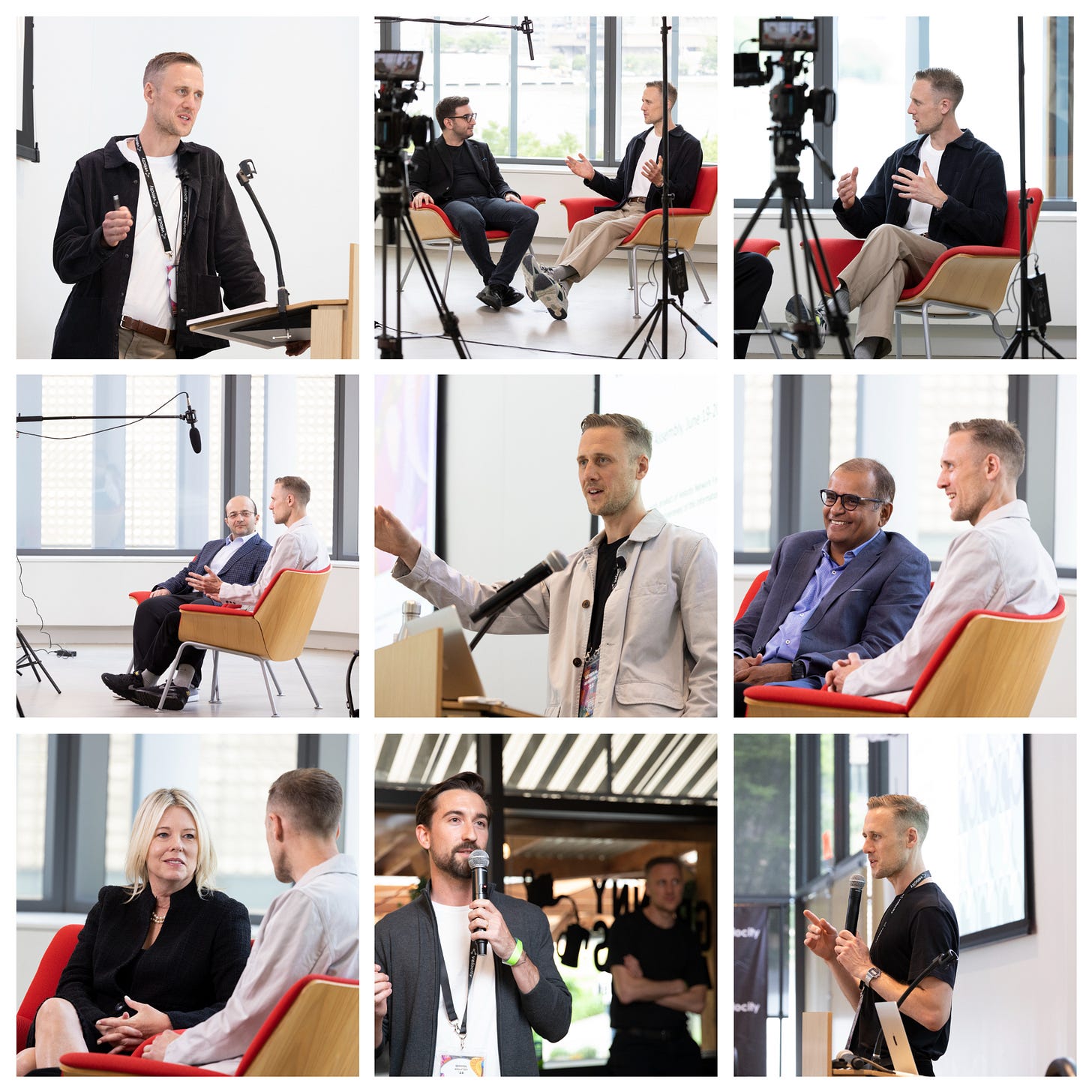After spending most of last week in New York City, hosting the Velocity Network Foundation General Assembly, I’m back with a later-than-usual newsletter.
And what a wonderful few days it was, meeting people who’d travelled from around the world to participate in what’s proving to be a remarkable movement that’s changing how organisations and individuals think about building careers. Over the next few months, I’ll share some thoughts on the many conversations I had with some super smart and interesting people at the conference.
One takeaway was the importance of community in making this happen and creating momentum behind Velocity’s vision to build the ‘Internet of Careers’.
So, with that in mind, here are two things for you:
Check out my conversation with Dan Bladen on this week’s podcast, in which we discuss the role of community and explore the latest trends in hybrid work.
If you’d like to hear me talk about community, hybrid work or any other themes you read about in the Future Work/Life newsletter, book me to speak with your team here.
On to my thoughts for this week…
Building a performance culture
Over recent months, I’ve had numerous conversations with business leaders who are advocating their team to adopt a ‘performance mindset’.
As the economy has tightened, pressures on margins have increased, and companies are cutting back. In this context, it seems logical to shift the emphasis towards building businesses that actually generate profit and growth (and, in so doing, ensure more people keep their jobs). For years, we’d gone too far the other way. Many large tech firms adopted a philosophy of hiring talent to deprive competitors rather than actually needing them. Meanwhile, extravagant perks and freebies painted a false picture of a ‘great place to work’, ignoring the things that really matter to building a great culture. These incidentals began to lose their lustre during Covid but now seem positively profligate as thousands of jobs are cut.
A performance culture makes eminent sense.
But a word of warning before we go too far in the other direction.
As Gallup’s most recent data suggests, worker engagement remains a BIG challenge.
In the UK, only 10% of people report feeling engaged with their work. In the US, the number is 31% - better, but nothing to shout about.
More alarmingly, people report their main feeling at work to be stress (44% globally) and even anger (21%).
Other studies, such as a recent report of nearly 12,000 workers by Cigna International Health, report stress characterising the experience of 84% of people, rising to 91 % of 18-24-year-olds.
Deloitte reports that 9 in 10 feel their work-life is worsening.
Not a pretty picture.
As I wrote last week, new situations require new ways of thinking, but this doesn’t mean squeezing every drop of the lemon out of yourself or your team.
World class performers
To illustrate, consider how you’d coach world-class athletes.
Alex Hutchinson, author of Endure: Mind, Body, and the Curiously Elastic Limits of Human Performance, was formerly an elite long-distance runner for Canada’s national team. His book explores Eliud Kipchoge’s attempt to run a sub-2-hour marathon and questions how we train our bodies and minds to achieve peak performance.
Note the choice of the word ‘limits’ in Alex’s subtitle.
Understanding the impact of rest and recovery on physical performance, he vividly reveals their effects on cognition, citing the work of sports scientist Samuel Marcora. A leading expert on the link between physical and mental capacity in performance, Marcora has created a test for brain endurance training, which Alex took to measure its effect on his marathon training.
Here’s how Alex described it in his Runner’s World article:
For the next 60 minutes, my sole task is to keep my brain locked on [an] excruciatingly dull parade of shapes. They flash by rapidly, leaving no time to daydream, check the clock, or even glance out the window. Still, thoughts intrude. I wonder how hot it is outside, whether I should have started earlier… BZZZ. The screen turns red. The longer I continue, the more frequent my mistakes become. When the hour is finally up, I have that cotton-headed feeling of total mental exhaustion that’s usually the cue to flop down in front of the TV for a few hours of mindless reruns.
After several hours of concentrating on a screen flashing up a series of Clockwork Orange-style images, guess what? Alex was exhausted, and his physical and cognitive performance diminished. Sound familiar?!
So if achieving peak performance requires thinking of your team as elite athletes, borrow the principles of the very best coaches:
Set clear, ambitious performance goals, and recognise progress.
Provide the necessary equipment, training and support to help them achieve their potential.
Take rest and recovery seriously, including incorporating the right pacing into your team’s working day, week and year.
Performance culture? Yes.
Hustle and grind culture? No.
Have a great week.
Ollie





